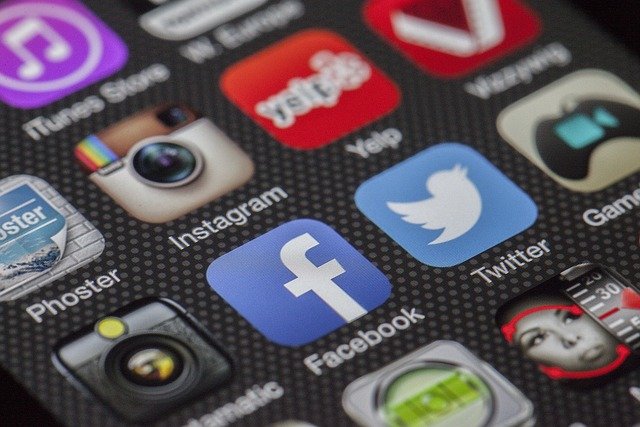Australia’s proposed social media ban for children under 16 is generating debate, with experts discussing its potential impact on child safety and the future of online platforms.
Cyber safety expert Kirra Pendergast experienced a shocking experience with 12- and 13-year-olds at an Australian high school. The boys shouted derogatory comments about women, echoing misogynistic rhetoric on social media. Pendergast broke down in tears when a girl made a crude remark.
“I can’t believe I’m crying on film,” Pendergast said in a video posted afterward. “I know that the behavior I witnessed today is driven by what these kids have seen online. It has to change.”
The Australian Government’s Proposed Social Media Ban
The Australian government is moving forward with a new law that would ban social media access for children under 16. The law, described as “world-leading,” targets platforms like Snapchat, TikTok, Instagram, Facebook, Reddit, and X (formerly Twitter). If passed, the legislation would hold social media companies accountable, with fines of up to 50 million Australian dollars ($32 million) for failing to stop children from using their services.
While specific solutions are not mandated, the government expects platforms to implement age verification systems. Privacy concerns are being addressed, but critics argue that the law may be rushed for political reasons. Some fear it will drive underage users into unregulated, more dangerous parts of the internet. Nonetheless, supporters argue that even if the law saves just one life, it will be worth it.
The Tragic Impact of Online Bullying
This legislation is fueled by a tragic string of recent suicides among children linked to online bullying. In September, 12-year-old Charlotte O’Brien died by suicide, followed by Ella Catley-Crawford, who was also 12. Both girls had allegedly been targeted by bullies on Snapchat. In Ella’s case, she was tricked by online bullies posing as someone else and had private videos shared without her consent. Her family created a GoFundMe campaign with the message, “SOCIAL MEDIA BULLYING IS REAL.”
Charlotte’s parents, Matthew Howard and Kelly O’Brien, have since joined a growing movement to raise the minimum age for social media use from 13 to 16. They presented a petition with 124,000 signatures to the Australian Prime Minister, urging action. “No parent should have to go through what we’ve been through,” said Matthew in a video shared with CNN.
A Rare Political Consensus
In Australia, political unity is rare, but there is broad agreement on the need for action to protect children from the harms of social media. The opposition party proposed a social media age limit in June, quickly endorsed by Prime Minister Anthony Albanese and state leaders. In a video posted to Instagram, Albanese said, “Social media isn’t social at all. It’s doing harm to our children, and we need to put a stop to it.”
Dany Elachi, a parent who once allowed his 10-year-old daughter to use a smartphone, agrees. After seeing how quickly it consumed her life, Elachi and his wife formed the Heads Up Alliance to encourage other parents to delay giving smartphones to their kids. “We’re seeing suicide notes from children that mention social media as a factor in their deaths,” Elachi said. “How can we still be debating whether social media is harming our children?”
Experts Debate the Effectiveness of a Ban
While the harmful effects of social media are widely recognized, some experts argue that an outright ban may not be the best solution. Over 140 specialists signed a letter urging the government to reconsider the ban, calling it a “blunt” tool that could remove the incentive for tech companies to improve safety features. They suggest more targeted measures, such as updating laws to better regulate digital platforms and involving young people in the process, would be more effective.
Dr. Amanda Third, a co-director at the Young and Resilient Research Centre at Western Sydney University, believes the current minimum sign-up age of 13 is appropriate for many children. While a ban might seem like an easy solution, she warns it won’t provide the relief parents are hoping for. “This issue will remain a part of parenting, and a ban won’t change that,” she said.
Critics also point to the political motivations behind the bill. With a federal election approaching, some view the legislation as an attempt to score political points, especially given media giant News Corporation’s vocal support for the ban.
Industry Reactions and the Road Ahead
Social media companies have made efforts to combat bullying. Instagram has partnered with Kids Helpline on an anti-bullying campaign, and Snapchat has emphasized the importance of blocking and reporting bullies. However, many feel these measures don’t go far enough to protect children.
Elon Musk, owner of X, has criticized the proposed ban, calling it excessive government intervention. His comments reflect broader concerns about government control over the internet.
Despite the debates, Pendergast remains firm in her belief that the law could make a difference. “If one simple rule can protect even one child and help them grow into a strong, resilient young person, isn’t it worth it?” she wrote in a Facebook post. “Why is child online safety being treated as a political game? Why is this debate even a competition, when the real losers are the kids?”
The debate continues, and the outcome remains uncertain, but the call for greater action to protect children online is only growing louder.
